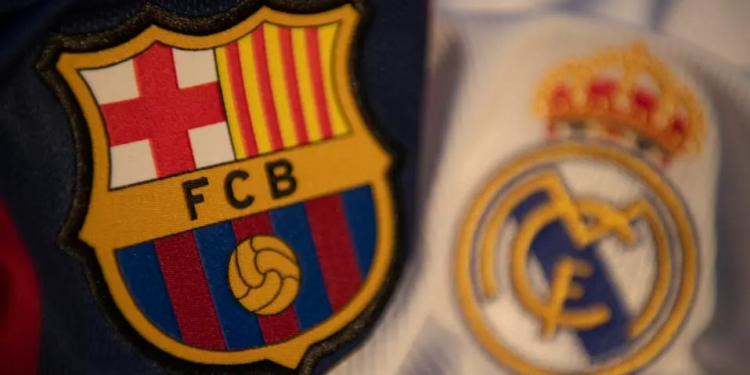- Barcelona and Real Madrid could receive a €1 billion loyalty payment if the European Super League materializes, despite widespread opposition
- The two Spanish giants, the only remaining clubs committed to the Super League, argue for its financial benefit and fan interest
Reports suggest that Barcelona and Real Madrid could receive an astronomical €1 billion (£868.9 million) loyalty payment if the European Super League materializes.
The two Spanish giants are the sole remaining clubs from the original 12 that signed up for the controversial project in April 2021. Despite widespread backlash leading other founding members to withdraw their support, Barcelona and Real Madrid have maintained their commitment to the Super League plans.
In response to threats of expulsion from competitions by FIFA and UEFA, the clubs, alongside principal backers A22 Sports, took legal action against the governing bodies. Last week, the European Court of Justice ruled that FIFA and UEFA’s threats to ban players were unlawful, providing a significant boost to Barca and Real in pursuing a breakaway league.
Barcelona and Real Madrid argue that a Super League is financially beneficial and in fans’ interest, despite global opposition to the idea. Sport reports that if the Super League concept eventually takes off, which is still highly unlikely, both clubs will be entitled to a €1 billion (£868.9 million) loyalty payment for their unwavering project support.
European Super League Triumphs in Legal Battle Against FIFA and UEFA
The European Court of Justice has ruled in favour of the European Super League (ESL) in its case against FIFA and UEFA.
Triggered by the pandemic’s financial impact, 12 teams, including six from the Premier League, initially announced plans to establish a new division to secure their financial stability. While English clubs and some others withdrew, Real Madrid, Barcelona, and Juventus remained committed to the proposed league.
FIFA and UEFA responded by threatening sanctions to protect their own competitions, prompting A22 Sports to take the case to the European Court of Justice. The aim was to prevent the governing bodies from imposing sanctions if the European Super League materialized.
In a groundbreaking decision, the court ruled that any attempt to ban players from participating in a breakaway competition like the Super League would be deemed “unlawful.”










Discussion about this post